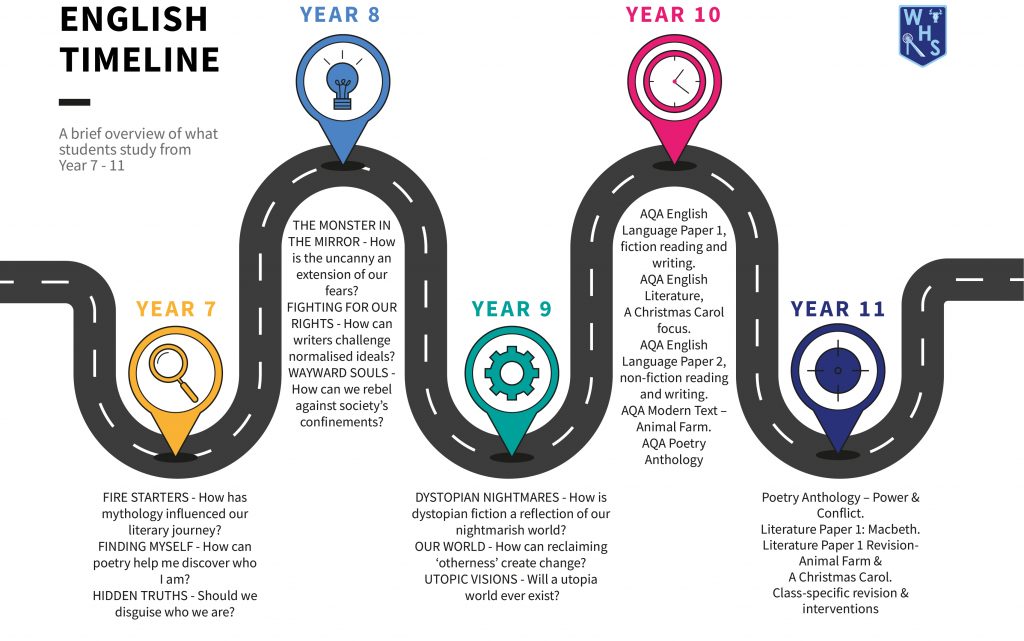The study of English at Westhoughton will empower students to:
- Make creative, passionate, and thought-provoking responses to our world as critical and reflective thinkers with high expectations.
- Explore their personal identity and perspective, developing an understanding of how to respect themselves, each other and their communities.
- Develop a love and enjoyment of literature, write like writers and engage openly in discussion.
- Confidently own an educated moral viewpoint, with an understanding of equality, inclusion and the importance or looking after each other.
- Move on to the next stage with a broad range of equitable opportunities and never stop learning.
Please see parental overview timeline of the course in KS3 and KS4 below:
Links for Support/Help at Home
- Use of student resources located within WHS SharePoint for students
- Use of online platforms such as Seneca for podcasts on Literature texts including content, themes, characters and language and/or technique analysis.
- Use of additional homework booklets, therapy work packs and/or additional resources from the class teacher via Synergy
- Wider reading: book purchases for students to have their own copies–or revision guides-to actively annotate (PPG funding can be used)
- Wider reading: library visits and/or reading of alternative novels/poems from studied authors/poets
- Theatre trips or cinema visits linked to any themes or texts studied
- Participation in parent-student events run within the English Department
- Teacher discussions following assessments and/or reports


